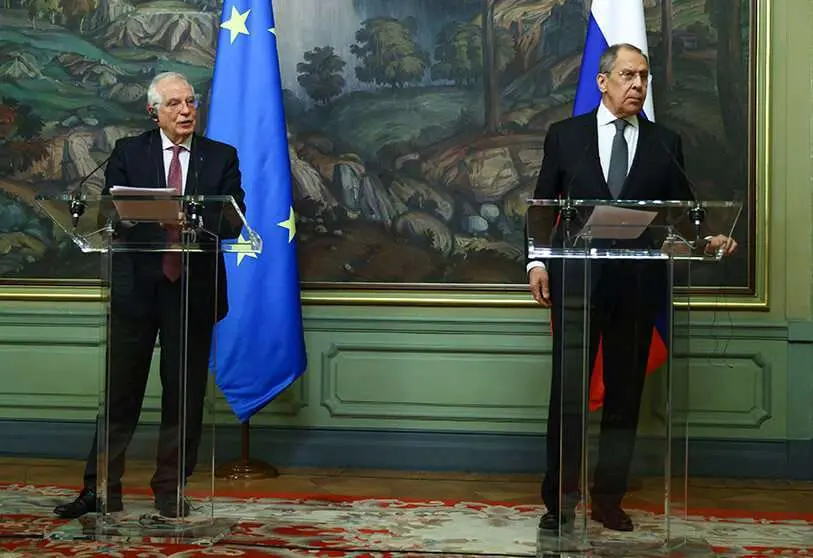Dog-faced diplomacy

The first thing a reader may think is that if it is diplomacy, it cannot be dog-faced diplomacy in public. And this phrase does not correspond to the behavior of most dog breeds. Diplomacy is the art of facing problems as delicately as possible when appearing before the media, without losing the firmness of your arguments in order to achieve your objectives, or at least the most relevant ones.
An essential rule in order to carry out productive diplomatic actions is not to belittle your opponent or think you can overwhelm him with the forcefulness of your arguments against him and, even less, to do so in his home and in front of several dozen journalists from all over the world. I suppose that a politician like Josep Borrell, High Representative for Foreign Policy of the European Union, would have prepared with his advisors and with representatives of key countries in relations with Russia, his recent visit to Moscow.
The first of a European diplomatic representative in four years because relations are going through serious problems since the crisis in Ukraine, the Russian annexation of Crimea and the sanctions imposed by the EU and the United States that are so annoying and damaging to the Russian economy. Ukraine is a very unfortunate case for the Ukrainians themselves and has meant a new cold war between Russia and the West, where each has its arguments. Time passes, circumstances change and the significance of the relations between the EU and Russia make it necessary to attempt a rapprochement that has first its dimension of officials and experts and secondly the meeting of ministers and those responsible for foreign relations.
At what point in this process did Josep Borrell forget something essential in this type of situation, which is: non-interference in internal affairs when you appear in public and in the home of your host. This is something we have learned over many years. For example, in relations with Cuba or China. There was never direct confrontation in public over human rights or political prisoners, which there and in Venezuela there are, but the interests of maintaining relations for different reasons prevailed.
Therefore, it is incredible that such an intelligent and experienced politician as Borrell, who was taking a courageous and necessary initiative for European interests such as improving relations with Russia and was also going to ask for support with vaccines against the coronavirus, which are scarce in the EU, raised in public in Moscow, in the way he did, the case of the opposition leader Alexie Navalni, absolutely unacceptable without doubt, and the repression of the protests.
The demagogic Russian response was devastating, comparing him with the imprisoned Catalan politicians, who were the only ones who gained something in the run-up to the elections. The controversy unleashed in Spain by the position of the second vice-president of the Government, Pablo Iglesias, in favor of Putin, affirming that there are democratic anormalities in Spain, should have its influence on the elections, both Catalan and general, when they come, although there is still too much time left. In Moscow, Putin's government spokeswoman boasts of having provoked the division in the Spanish Government and asks which part of the Executive should be taken into account. The international discredit is unprecedented and intolerable because of its serious consequences in all areas for the interests of Spain.
In Brussels, Borrell refuses to resign and has suffered an avalanche of criticism, although some of the vociferous ones should be ashamed even to go out on the street, even if it is in the Belgian capital as the fugitive Puigdemont. The management in Moscow has been a disaster because it has not even helped Europe to have more vaccines against Covid, which is the serious problem we are suffering at the moment.
Dog-faced diplomacy is not the way. The treatment of the opponent Navalni is absolutely unacceptable but he is better defended with the usual discreet diplomacy than with public crusades, especially when there are numerous interests to redirect relations with the Russian regime and many keys are in Ukraine and in the sanctions. In addition, the winter heating of the Germans is a good indicator, among many others, such as the Russian tourists that we miss in Spain.

